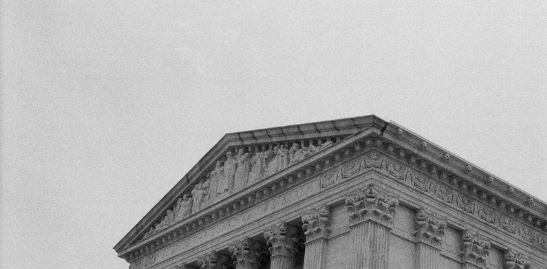As President Donald Trump’s executive orders unfold, they continue to deepen the divisions within the American political landscape. These orders, which range from contentious immigration reforms to sweeping changes in environmental and economic policies, have become the epicenter of intense debate across the country. What some view as necessary reforms to secure America’s future, others see as a direct threat to the principles of democracy and individual rights. The resulting conflict has exposed a nation at a crossroads, with ongoing legal battles and widespread protests signaling a crucial moment in American governance.
Supporters See Bold Leadership, Advocates for Change
For many of President Trump’s supporters, the executive orders represent a long-awaited fulfillment of his campaign promises. His push to “drain the swamp” is widely seen as an effort to dismantle a political system perceived as corrupt and ineffective. These supporters often view his stringent stance on immigration as a much-needed correction to what they consider the failure of past administrations to secure the nation’s borders and enforce immigration laws effectively. The tightening of asylum policies and efforts to curb illegal immigration have been particularly praised by those who argue that such measures are essential to preserving national security and protecting jobs for American citizens.
Additionally, Trump’s economic policies, especially his attempts to renegotiate trade deals and protect American industries, have found favor among many of his backers. They view his actions as critical steps to revive the economy and restore American dominance in global markets. By sidestepping partisan gridlock, Trump’s decisive measures are seen as evidence of his determination to put the interests of ordinary Americans first, even at the expense of long-standing political conventions. To these individuals, the president’s unyielding approach symbolizes a return to pragmatic governance, unafraid to confront both domestic and international challenges head-on.
Opponents Warn of Grave Consequences
However, Trump’s executive orders have sparked widespread opposition from various sectors of society. Protests have erupted in cities across the nation, led by civil rights organizations, environmental advocates, and immigrant support groups. These critics argue that the policies disproportionately harm vulnerable communities, undermining hard-won rights and protections. Immigrant rights groups, in particular, have raised alarms about the potential for mass deportations and the erosion of safeguards for asylum seekers. They warn that these measures will create a climate of fear, disproportionately affecting families and individuals who are already marginalized.
Environmental organizations have also sounded the alarm, fearing the long-term consequences of Trump’s deregulatory policies. Critics contend that rolling back environmental protections in favor of short-term economic growth could lead to irreversible damage to ecosystems, public health, and climate stability. They argue that the president’s aggressive stance on deregulation disregards the urgent need to address climate change and safeguard the nation’s natural resources for future generations.
This growing opposition, initially sparked by specific policies, has morphed into a broader resistance movement questioning the values that have long defined American democracy. The protests are not just about the specifics of Trump’s orders but reflect deeper concerns about civil rights, social justice, and the preservation of environmental protections.
The Legal and Constitutional Battle Ahead
In addition to street protests, the legal challenges to Trump’s executive orders have begun to take shape. Civil rights organizations, environmental groups, and immigrant advocates have already filed lawsuits aimed at challenging the legality of several key policies. Legal experts predict that the courts will play a crucial role in determining the constitutionality of these actions, with the future of executive power itself hanging in the balance.
At the heart of these legal battles are fundamental constitutional principles such as due process, equal protection, and the separation of powers between the branches of government. Should the courts uphold Trump’s executive orders, it could set a precedent for a broader interpretation of presidential authority, potentially altering the balance of power in the U.S. for years to come. Conversely, if the courts rule against the orders, it could signify a major setback for the president, forcing a reevaluation of his approach to governance and possibly stalling many of his key policies.
A Nation Facing Uncertain Times
As both legal challenges and public dissent continue to escalate, the United States finds itself at a critical juncture. The clash between concerns over national security, civil liberties, and the scope of executive power has become a defining issue of this moment in American history. Whether Trump’s executive orders will withstand legal scrutiny or lead to long-lasting social and political consequences remains uncertain. One thing is clear: these policies have exposed a profound ideological divide that is likely to shape the nation’s future for years to come. The outcome of this legal and social struggle will not only determine the trajectory of Trump’s presidency but also the direction of American governance for generations to come.



